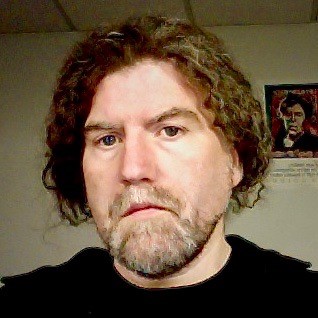Science and Mathematics
New Vision for LIGO: Coating Thermal Noise and the New Observables for Gravitational Wave Astronomy
November 5, 2020 at 3:45pm – 4:45pm EST
Virtual (See event details)
This event has already occurred. The information may no longer be valid.

The Department of Physics welcomes Professor Steven Penn to present their virtual colloquia.
Steve is an associate professor of physics at Hobart and William Smith Colleges in Geneva, NY. He received his doctorate in Nuclear Physics from MIT, where he was awarded the Karl Taylor Compton award for overall excellence. His first postdoc was at the University of Washington with Eric Adelberger, Blayne Heckel, and Jens Gundlach, current winners of the Breakthrough Prize.
While a postdoc at Syracuse, Steve began working on thermal noise issues in LIGO. He determined how to minimize thermal noise in fused silica, used in LIGO substrates and suspensions. He isolated the source of coating thermal noise and helped develop the coating currently used in Advanced LIGO. For the past few years he has been collaborating with Prof. Stefan Ballmer on thermal noise experiments at SU.
Steve is currently Chair of the LIGO Scientific Collaboration Council. He has in the past chaired the LSC Coating Working Group and the LSC Bylaws Committee. He has also served on the LSC Presentations and Publications Committee and the Executive Committee of the APS Topical Group on Gravity (now the Division of Gravitational Physics).
Abstract: For the past 20 years, gravitational wave scientists have been working to understand and minimize thermal noise in the test mass mirror coatings, which was first measured at Syracuse. This challenging problem, at the intersection of materials and precision physics, has proven to be particularly intractable because of the complexity of the materials. But recently we have found a breakthrough new coating that could potentially solve this problem for current and future detectors. We will discuss how a dramatic lowering of the coating thermal noise should reveal a wealth of new observations for GW detectors.”
This event was published on September 22, 2020.
Event Details
- Category
- Science and Mathematics
- Type
- Talks
- Region
- Online
- Open to
- Alumni,
- Current Students,
- Faculty
- Organizer
- CAS-Department of Physics
- Contact
- Yudaisy Salomon Sargenton
phyadmin@syr.edu
3154433901
- Accessibility
- Contact Yudaisy Salomon Sargenton to request accommodations
